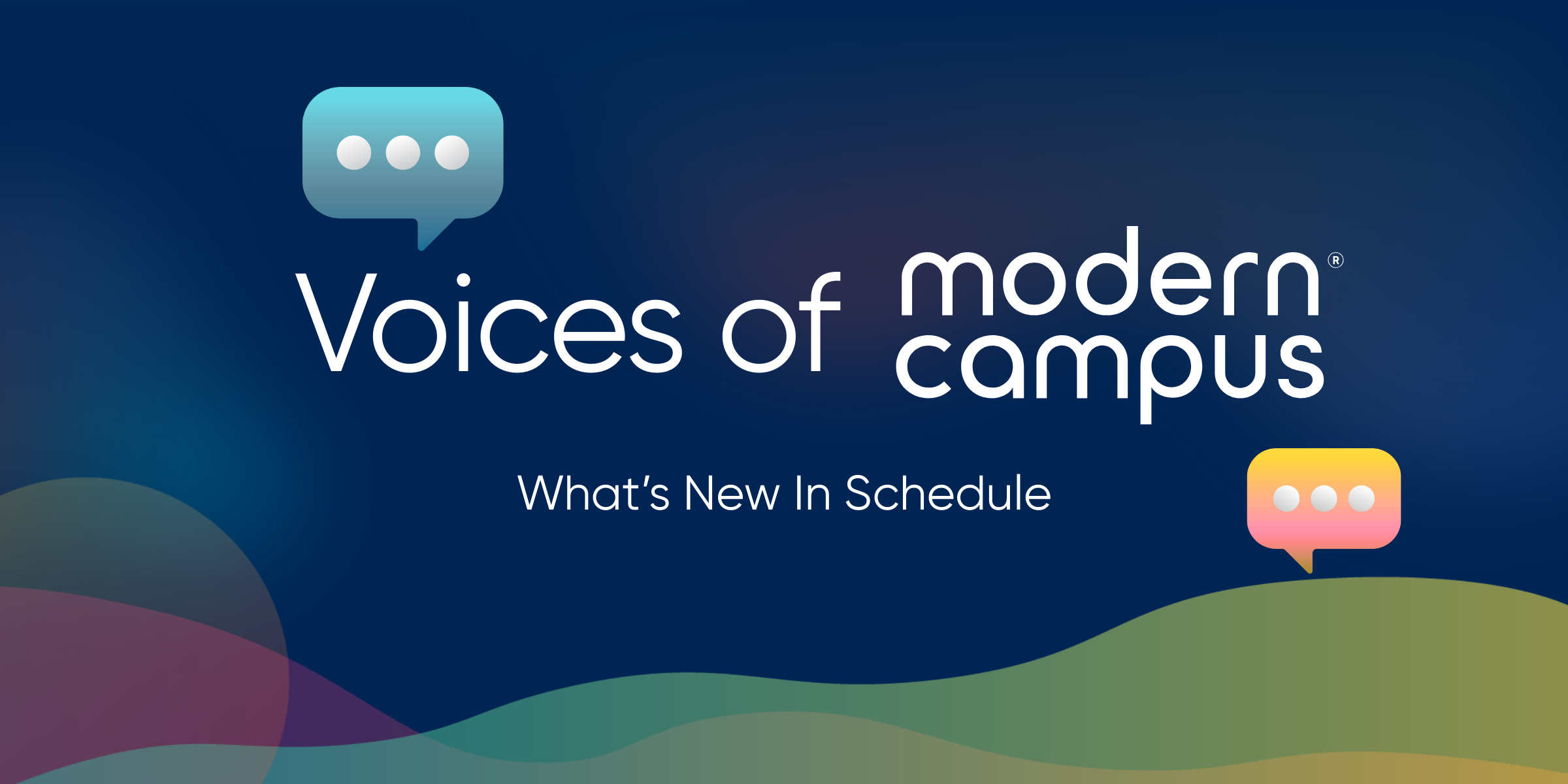How to Combat 8 Myths About Student Affairs
In many ways, Student Affairs within higher education is only as valuable as its reputation.
When students don't buy into the value of engaging in campus life, engagement — and thus the benefits it provides — suffers. Likewise, when other departments within a college or university hold misconceptions about the work of Student Affairs, campus decision-makers are likely to reduce the budget devoted to student engagement.
So, today, we're debunking some of the top myths that harm offices of Student Affairs and keep higher education institutions from reaching their full potential.
If you are a Student Affairs professional yourself, we hope these facts and figures will inspire you to educate students and colleagues on your work. If you're a student or a higher education professional focused on another area, we hope this list will give you a truer, more vibrant picture of student engagement.
1. Student organizations and campus events are superflous distractions from "real" educational experiences
Higher ed leaders outside of Student Affairs & Success Services often scoff at student clubs and organizations. They may argue that clubs focused on frisbee golf, anime, or a capella provide bits of pointless fun — enjoyable for their few members but without any bearing on the overall collegiate experience.
Solution: Highlight the evidence
Research disagrees with this myth. Co-curricular engagement isn’t an easy, mindless way for students to fill up their free time, akin to watching TV or scrolling Tik Tok. Students who regularly engage in campus programs and join student organizations are more likely to persist through to the next academic year than their uninvolved peers. They also typically feel a greater sense of belonging within their institutions, maintain higher GPAs, and are seen as more ready for the workforce by employers.
Additionally, a 2016 study of students across 40 colleges and universities found that highly involved students rated themselves higher than their uninvolved peers in the top 11 soft skills valued by employers. In fact, a desire to learn new skills is why many students join campus clubs and organizations in the first place. The majority of highly involved students at The Ohio State University – 63.6% – said they engage with student organizations, at least in part, to gain leadership skills and abilities.
By showcasing this evidence to your coworkers and institutional leadership, you can gain deeper investment in your work.
Better yet, by adopting a student engagement platform like Modern Campus Involve, you can gain data that shows off the benefits of student engagement specific to your students and campus.
Take Hartford Community College as an example. They discovered that students are 53.7% more likely to persist through to the next semester when they’re engaged in activities outside of the classroom!
Additional reading: How Student Engagement Can Make or Break Your Retention Rate
2. The only goal of co-curricular events is to have fun
First off, having fun can easily be argued to be a noble goal in and of itself! Fun programming supports students’ mental health, promotes social wellness, and increases students’ satisfaction with the higher ed experience. But that’s not all programs can do
Solution: Incorporate learning outcomes
By building your programs with specific learning outcomes in mind, you’ll help students learn essential skills to support their academic and career success. Here are some ways to design learning-focused programs on your campus.
Additional reading: Co-curricular Frameworks for Skills Development in Student Affairs
3. There’s no need for Academic Affairs and Student Affairs to ever collaborate
Students don’t view their academic experiences as separate from their co-curricular engagement; it’s all part of their broader higher ed experience. So, as studies have shown, a collaboration between Academic Affairs and Student Affairs in higher education improves the holistic student experience and produces greater outcomes for the institution.
Solution: Build relationships and emphasize shared goals
Here are some ways professionals working in Student Affairs can start collaborating with their colleagues in Academic Affairs.
Emphasizing shared values, goals, and interests is key to getting colleagues excited to collaborate with you. By showing other offices how a partnership is mutually beneficial, they’ll be more likely to devote time and effort toward supporting your work — all because they’ll understand that it will benefit their own goals too!
Additional reading: Why Campus Collaborations Are Key to the Success of Student Affairs at Any Institution
4. Being involved on campus has no impact on a student’s job prospects
Once again, research says otherwise.
Today’s employees are increasingly looking for applicants with impressive soft skills; industry-specific knowledge is not enough to make students competitive in the workforce.
Fortunately, employers understand that co-curricular engagement boosts skill development. In response to a survey by the American Association of Colleges & University, employers said they are more likely to hire candidates who had the following experiences in college:
- An internship or apprenticeship - 90%
- A work-study program or other form of employment during college - 90%
- An experience that involved working in community settings with people from diverse backgrounds or cultures - 88%
- An experience that involved working with mentors and/or individualized advisors - 87%
- A community-based or service-learning project - 85%
- A global learning experience that included exposure to diverse experiences and perspectives - 84%
Solution: Adopt co-curricular transcripts
You can help students connect their out-of-the-classroom experiences to employer demands by empowering students to build co-curricular transcripts. They’re an official written record of everything a student did and learned outside of the classroom while at your institution.
SmartTranscripts™, only available through Modern Campus Involve, make it extra easy and accurate. You can sync all of a student’s completed and in-progress experiences, certifications, points, service hours, and skills into one fully-automated, live-updating profile.
Additional reading: What Students Need from Higher Ed to Articulate Essential Skills
5. Analyzing data isn’t part of the job
Data shouldn’t just be your assessment specialist’s job.
Collecting and analyzing data can guide your decision-making — informing decisions big and small, from how to arrange event seating to whether orientation needs a complete overhaul. By better understanding campus trends and students' needs, you can unlock new ways and approaches for engaging, supporting, and retaining more students.
With the right data, you can make informed decisions about funding, staff efficiencies, programming, engagement initiatives, and so much more.
Solution: Embrace the joys of data
As we explained in Why Data is Pivotal to the Future of Student Affairs, becoming a data champion is easier—and more rewarding—than you may think. You can gather data through surveys, polls, interviews, participation, and more.
By approaching data slowly and with curiosity, you’ll be on your way to making smart decisions based on your students’ needs.
Additional reading: 5 Clever Ways You Can Use Engagement Data to Improve Campus Programming
6. Only extroverted students care about getting involved
To bust this myth, let’s first bust a myth about introversion: being introverted isn’t equivalent to being shy, having social anxiety, and/or lacking any interest in other people. No need to envision your introverted students cloaked in all black, emerging from the depths of their quiet rooms exclusively for class and only talking when absolutely necessary.
Introverts can – and often do — enjoy socializing and deeply value interpersonal relationships. It’s just that they prefer different modes of socializing, ones with less stimulation.
When they’re connected to the right opportunities, students of all personalities can enjoy and benefit from student engagement.
Solution: Design programs with introverts in mind
As we previously explained: Introverts can – and very often do — enjoy socializing and deeply value interpersonal relationships. It’s just that they prefer different modes of socializing, ones with less stimulation.
Knowing that, you can design programs that allow attendees to self-reflect, learn and meet their peers without a lot of small talk, noise, or other chaotic energy. Check out the additional reading below for specific program ideas that are especially appealing to introverts.
Additional reading: Draw Your Introverted Students into Campus Life with These 7 Tips
7. Engaging commuter students is a lost cause
Designing opportunities that draw in students who’ll need to drive or take public transport is indeed more challenging than engaging students who live on campus or right next to it. But it’s far from a lost cause.
Solution: Get to know your commuters
You’ll need to design programs with their needs specifically in mind. Consider timing, location, accessibility, and, of course, the program’s content; will commuter students easily be able to attend, and will they be tempted to do so?
This is another instance wherein data can help. By understanding the challenges and goals of your commuter learners, you can design programs that fit the bill.
Additional reading: 8 Outstanding Programs That’ll Elevate the Commuter Experience on Your Campus
8. Pizza parties and free t-shirts are the best ways to promote engagement
Pizza and free t-shirts can occasionally work well to motivate attendance, but these two staples can quickly lose their luster — especially when multiple student orgs and staff departments offer those same prizes day after day.
Solution: Gamify your opportunities
Gamification is one fantastic way to incentivize engagement. By assigning point values to each experience and granting points for achievements, you’ll keep students coming back for more. The key here is progressive rewards; make your prizes better and better each time students return.
Want some inspiration? Learn about the points programs implemented by Chattahoochee Technical College and the University of Lynchburg
Additional reading: How You Can Gamify Student Experiences to Level Up Engagement
3 Reasons Your Students Need Stronger Co-Curricular Engagement
Why It’s Essential To Your Student’s Immediate And Long-Term Outcomes
Last updated: July 6, 2023




